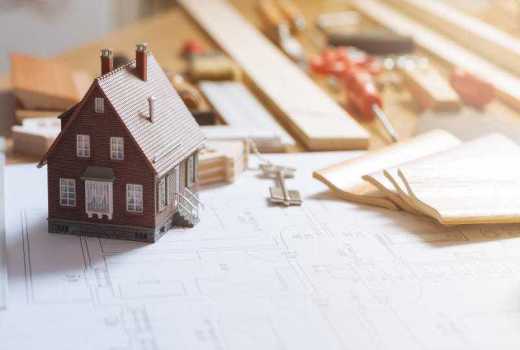
1. Ensure no-contest on your title deed
Is your title deed under your name and within your reach? You will be surprised by the number of people looking to build while they are not sure whether their plot legally belongs to them.
I have witnessed many cases where another party shows up at a construction site with court orders arguing that they own the valid title to the land. Get a title deed search done before embarking on a building project to ascertain that you are the valid owner of the land. Also, if you are paying for the land by installments, ensure that you have paid off the entire sum and acquired the title deed before starting construction.
2. Gather the right people
You will need a vast team before embarking on any building project. Gathering your team of professionals is a delicate process that should be done with care because you cannot afford to end up with an uncooperative and incompetent team. The professionals to consult and bring on board will include the architect, engineer, quantity surveyor and the contractor.
While deciding on someone to work with, the most important factor to consider, besides their competency and experience, should be how well you relate with them. The building process can be lengthy, and you will spend a considerable amount of time with your professionals. Make sure they are not people with whom you’ll consistently quarrel.
3. Budget with a quantity surveyor
Many people set out to build without having an idea as to how much money they will have spent at the end of the process. As a result, structures that were supposed to give them financial freedom usually end up bankrupting them. Lack of proper budgeting is also one of the leading causes of stalled projects.
To prevent such scenarios, proper planning, with advice from an expert, is crucial. Sit down with your quantity surveyor and write down exactly how much money every aspect of the building process will cost. While gathering your professionals, ensure every one of them understands the maximum amount of money you are willing to spend, and be firm on this as it will save you a lot of agony.
4. Know the building regulations in your area
It is vital to familiarise yourself with your area’s zoning and building regulations. This will determine the kind of structure you could put up in a particular area.
In some areas that are designated for commercial buildings, putting up a residential house might prove an unwise decision as you might always be surrounded by heavy human traffic. Conversely, nobody will allow you to go beyond a certain number of floors in certain residential areas. Some tracts of land are exclusively set aside for agricultural use. Knowing the area’s building code will give you a lot of clarity.
5. Get a good architect
The next step would be sitting down with your architect and outlining your vision to them. They will at first draw up several initial designs for you depending on the aspects of your desire. You will then choose your desired sketch from which they’ll come up with a final floor plan. The architect will then consult with other professionals such as the engineers and the quantity surveyor so as to incorporate the cost and structural integrity considerations.
6. Get a lawyer to comb through your contracts
During the building process, you might find yourself signing a number of contracts with several parties such as suppliers, contractors and architects. Get a lawyer to go through the contracts and explain to you exactly what they say. They might point out several issues that might need revision, and this will save you lots of agony.
7. Prepare your land for construction
This might include removing any persons squatting on the land and clearing the vegetation that might hinder the building process. Speak to your neighbours to know if your building will disturb their peace, and find ways to amend this. Also, organise for security for your materials and your workers.
8. Bring social amenities closer
Setting up infrastructure crucial to the construction process before-hand will save you in costs and ensure that your building process moves faster. Get water connected to your lot. If you will be using advanced machinery in your building process, get electricity connection beforehand too. If accessing the piece of land is a challenge, you might consider constructing roads for ease of access.
9. Consider using a construction company
Some people shy away from engaging a construction company with a mistaken belief that the process will be expensive. This is not usually the case. You might find your project finished at a cost far less than what you had initially budgeted for. A reputable construction company saves money through professionalism. There is a lot of stealing and pilferage by fundis at construction sites, with materials such as cement, timber and stones vanishing. A construction firm is professionally run and reduces these pilferages, thus saving costs.
Also, to get quality workmanship and quality material, a reputable construction company will help you a great deal. Construction companies sometimes order building materials for several clients in bulk and have relationships with suppliers that guarantee low prices.
 The Standard Group Plc is a multi-media organization with investments in media
platforms spanning newspaper print operations, television, radio broadcasting,
digital and online services. The Standard Group is recognized as a leading
multi-media house in Kenya with a key influence in matters of national and
international interest.
The Standard Group Plc is a multi-media organization with investments in media
platforms spanning newspaper print operations, television, radio broadcasting,
digital and online services. The Standard Group is recognized as a leading
multi-media house in Kenya with a key influence in matters of national and
international interest.
 The Standard Group Plc is a multi-media organization with investments in media
platforms spanning newspaper print operations, television, radio broadcasting,
digital and online services. The Standard Group is recognized as a leading
multi-media house in Kenya with a key influence in matters of national and
international interest.
The Standard Group Plc is a multi-media organization with investments in media
platforms spanning newspaper print operations, television, radio broadcasting,
digital and online services. The Standard Group is recognized as a leading
multi-media house in Kenya with a key influence in matters of national and
international interest.










